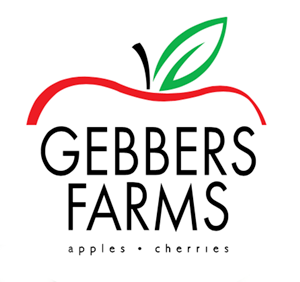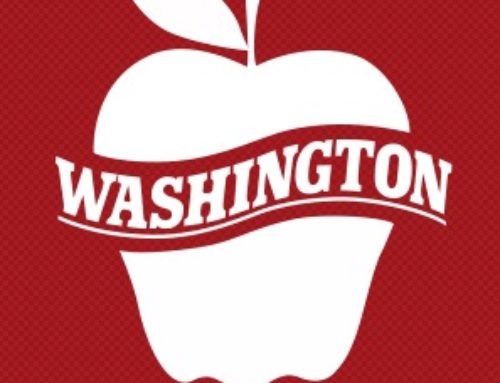Editor’s note: Since this story went to press, the Washington State Department of Labor and Industries announced that it found “willful serious” violations of masking and social distancing requirements at another tree fruit employer, Evans Fruit Co. of Yakima. The story has been updated below to include details of the state’s second investigation into that company as well.
With one of the largest fines for workplace safety violations in state history, Washington state regulators made it very clear that emergency workplace safety rules intended to protect farmworkers from COVID-19 will be strictly enforced.
In December, the state Department of Labor and Industries fined apple and cherry grower Gebbers Farms over $2 million for “egregious, willful” violations of COVID-19 health and safety precautions. Gebbers is appealing.
While the investigations at Gebbers began with the deaths of two workers on H-2A visas in July, the magnitude of the fines results from the fact that it took 12 days for the Brewster, Washington-based company to correct the violations of not providing required social distancing in housing and transportation, said Tim Church, a spokesperson for L&I. Several other tree fruit farms were among the 20 or so agricultural employers hit with fines for “serious” violations of COVID-19 regulations, with penalties ranging from $5,000 to $13,000.
At Gebbers Farms, a 37-year-old man from Mexico died on July 8 and a 63-year-old man from Jamaica died on July 31, according to the L&I news release. A third farm employee who died of COVID-19 was a local resident.
Under the state’s emergency COVID-19 rules for temporary worker housing, bunk beds can only be used if workers stay in cohorts of 15 or fewer workers who work, sleep, eat and travel separately from others.
Gebbers’ management said in a statement that, based on the advice of an infectious disease expert, the company created a cohort system of its own early in the pandemic, prior to the state’s 15-person “group shelter” option that took effect on May 18, with groups of 42 people working and traveling together. That wasn’t sufficiently protective, the state found.
But agricultural employer industry group wafla said growers with temporary worker housing were stuck with rules that weren’t feasible or based on sound science.
“There is nothing special about the number 15. It’s a political number,” said wafla President Dan Fazio. “Bubbles work, and that’s what Gebbers was trying to do.”
The emergency rules were renewed again in January and are likely to remain in place until vaccination is more widespread.
“I think it’s fair to say the agency wants to send a message that failure to comply will have consequences,” said Jon DeVaney, president of the Washington State Tree Fruit Association. “However you feel about the rules that have been implemented, the fact is the state has instituted these rules and they are enforcing them.”
Deaths, days to reach compliance lead to record fines
Citation records show that L&I found 2,700 H-2A workers were potentially exposed to COVID-19 in nine different housing camps because bunks were used for more than 15 workers. That accounted for 12 violations. Another 12 stemmed from the farm’s use of buses to transport up to 42 workers to and from orchards — failing to provide social distance or limit workers to 15-person cohorts.
L&I first alerted Gebbers to those concerns during a late May investigation triggered by a worker complaint. That investigation resulted in a $13,200 fine issued in November for using bunk beds without a cohort system and not ensuring social distancing.
When investigators came back in July, they also noted the failure to erect physical barriers in the community kitchen and failure to report the first employee death within eight hours, according to the citation.
“Gebbers continually failed to comply, even after the first worker died and our repeated presence at the farm, clearly demonstrating a lack of regard for worker safety and health,” said Anne Soiza, L&I assistant director for the Division of Occupational Safety and Health, in a statement.
A spokesperson for Gebbers Farms, Amy Philpott, disputed that statement, saying that worker safety has always been the company’s priority. In July, at the peak of cherry season, the company had some 4,500 workers it needed to shift into smaller cohorts, a logistical challenge that took time to accomplish, she said.
“They had already retooled their system to fit a 42-person cohort and had to retool it again to accommodate 15,” she said. With 4,500 employees, “that just doesn’t happen quickly.”
Philpott also said Gebbers Farms was unable to immediately report the employee death to L&I because the hospital and local health district would not release the information to the employer.
“While we disagree with the agency on this matter, we will always do everything we can to keep our employees safe in the workplace,” the statement from Gebbers’ management said.
Testing of over 3,000 employees at Gebbers Farms, mandated by the state in late August, found that just 22 employees at the time were positive for COVID-19. At 0.7 percent, that fell far below the positivity rate for the surrounding community and the state of Washington. That’s a sign the company’s health and safety precautions were working, CEO Cass Gebbers said in early September, almost two months after the first worker’s death.
Such widespread testing was not available in July, Philpott said.
Other violations elsewhere
Different states set different approaches for inspecting businesses for COVID-19 safety.
In California, farms and labor contractors were among the businesses cited for unsafe working conditions related to COVID-19. For example, in December, citrus packer Fancher Creek was fined $6,750 for failing to prevent exposures with engineering controls such as plexiglass barriers and social distancing, and Bayview Vineyards Corp. of Napa was fined $5,400 for failing to provide sufficient shade for social distancing during rest breaks. Other agricultural employers who were cited were fined in a similar range.
In Michigan, a review of businesses cited for workplace safety violations found no farms on the list, but the state health department cited a farm market in Northwest Michigan for holding a large Christmas event that flaunted capacity and mask requirements, as well as the ban on indoor dining. Friske Farm Market had previously sued the state and governor over the mask mandate, according to the Detroit Free Press.
But in a Facebook post in December, co-owner Rich Friske said that the family-owned business was going to cancel another Christmas event on the advice of its lawyers. “We are unfortunately in a position where they can take our business license,” he said.
In Washington, other tree fruit businesses cited by L&I include King Fuji Ranch of Mattawa, which was fined $13,000 for violations including shelter-group workers interacting with others and not having barriers in cooking areas, and Evans Fruit Co. of Yakima, which was fined $6,600 for employees not wearing masks, taking temperatures or social distancing, the agency said in a November news release.
In January, L&I also announced a $156,000 fine against Evans Fruit, citing “willful serious” violations of masking and social distancing requirements inspectors discovered at one of the company’s packing houses in October. Evans Fruit told the Good Fruit Grower it plans to appeal.
Church, the L&I spokesperson, stressed that the investigation at Gebbers was not representative of what health and safety inspections found this summer during more than 400 inspections of agricultural employers.
“Many farmers have been able to follow these rules and do it well,” he said. “Workers should not be put at risk when we know the things that can be done to decrease the risk. Unfortunately, that wasn’t done in this case.” •
—by Kate Prengaman








Leave A Comment